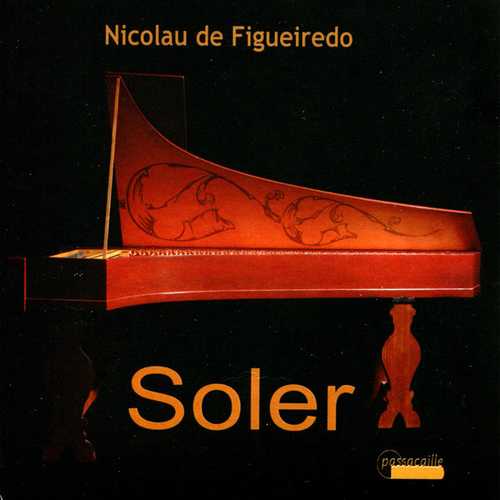
Composer: Antonio Soler
Performer: Nicolau de Figueiredo
Format: FLAC (tracks)
Label: Passacaille
Catalogue: PAS943
Release: 2008
Size: 337 MB
Recovery: +3%
Scan: cover
01. Sonata in D-Flat Major: Allegretto
02. Sonata, R. 88 in D-Flat Major: Allegro
03. Sonata, R. 85 in F-Sharp Major: Allegretto
04. Sonata, R. 90 in F-Sharp Major: Allegro
05. Sonata, R. 54 in D Minor: Allegretto
06. Sonata, R. 15 in D Minor: Allegretto
07. Sonata, R. 86 in D Major: Andantino
08. Keyboard Sonata No. 84 in D major
09. Fandango
Humberto de Oliveira’s booklet notes for this terrific release by Brazilian-Swiss harpsichordist Nicolau de Figueiredo ask a question that may have occurred to keyboard music fans who’ve gone beyond Domenico Scarlatti and listened to the keyboard sonatas of Padre Antonio Soler, from the next Spanish generation. What of that “Padre”? If he was a cleric, why was he writing secular instrumental music, based on popular dance models? The answer turns out to be both less and more freighted with significance than it might seem. Less so because Soler was a member of the Spanish court, living and working (and dying) at El Escorial, Spain’s unique combination of monastery and royal residence. He wrote keyboard music because he was expected to do so. But that is not to say that religious people did not worry about Soler’s music. It touched off quite a debate, and Oliveira entertainingly recounts this little-known chapter of music history. At issue was not just the vigorous dance quality of Soler’s sonatas, which are close to Scarlatti in this regard; ecclesiastical authorities also argued over their modulations, which seemed to violate the very rules of music. This debate seems to pervade the air as Figueiredo plays the sonatas, letting harmonic departures hang daringly and emphasizing dissonances within the context of a big, tough sound on his copy of a 1778 harpsichord from Tuscany. It all comes together in the work that must have been hardest of all for Spanish clerics to take, Soler’s most famous work, the Fandango that closes the album. Figueiredo’s towering performance, tying it all the way back to the old ground bass forms and yet looking forward to Romantic pianism, looms over earlier readings of the work, and the entire album, with excellent sound, is highly recommended to anyone looking for a place to start with Soler. Notes are in French, English, and German.
Soler was an Augustian monk and the debate clearly splits musicologists as to whether or not Soler was a great composer or a minor Spanish composer of the 18th century. Many people have said that an ordained monk could not possibly write such cheerful music! This is a beautiful programme of music played by Nicolau de Figueiredo on an instrument built by Emile Jobin after Cresci, Livorno, 1778.